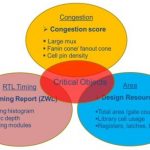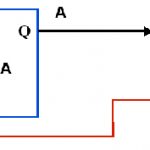If we look at the past, most of the EDA tools in the semiconductor design space have originated from a designers’ need to do things faster. Regardless of whether it is design exploration, manual design, simulation, verification, optimization (Power Performance Area – PPA) and many other steps in the overall design flow.… Read More
Tag: atrenta
A Methodology for Assertion Reuse in SoC Designs
As your SoC design can contain hundreds of IP blocks, how do you verify that all of the IP blocks will still work together correctly once assembled? Well, you could run lots of functional verification at the full-chip level and hope for the best in terms of code coverage and expected behavior. You could buy an expensive emulator to … Read More
RTL Sign-off – At an Edge to become a Standard
Ever since I have seen Atrenta’s SpyGlass platform providing a comprehensive set of tools across the semiconductor design paradigm, I felt the need for a common set of standards to evolve for sign-off at RTL level. Last December, when I read an EE Times articleof Piyush Sancheti, VP, Product Marketing at Atrenta, where he talks … Read More
A Power Optimization Flow at the RTL Design Stage
SoC designers can code RTL, run logic synthesis, perform place and route, extract the interconnect, then simulate to measure power values. Though this approach is very accurate, it’s also very late in the implementation flow to start thinking about how to actually optimize a design for the lowest power while meeting all… Read More
Smart Clock Gating for Meaningful Power Saving
Since power has acquired a prime spot in SoCs catering to smart electronics performing multiple jobs at highest speed; the semiconductor design community is hard pressed to find various avenues to reduce power consumption without affecting functionality and performance. And most of the chips are driven by multiple clocks that… Read More
Happy Holidays from Atrenta
It is that time of year and once again Atrenta has produced a video wishing you all the best for the holiday season. They are so spread around the world it is not just Hanukkah and Christmas but the Asian Lunar New Year (end of January) and probably some more holidays I don’t even know about. Last year there was a competition to name… Read More
Design Methodology and its Impact on the Future of Electronics
Today at the Semisrael Expo 2013 (in Israel of course) Ajoy Bose gave a keynote on how design methodology will impact electronics. The big pictures is that microelectronics is driven by some major disruptive forces and, as a result, technology and industry are evolving dramatically, which creates a need for research and innovation… Read More
Start With The End In Mind – For Complete & Fast Success!
There is always a rush to converge a semiconductor design toward faster closure, amid increasing divergent trends of multiple IPs and high complexities of various functionalities on a single chip. Every design house struggles hard to evolve its customized design flows with several short paths patched up to fix issues, global… Read More
Hierarchical Clock Domain Crossing
One of the first blogs I wrote on SemiWiki was on clock domain crossing (CDC). I thought it was rather a specialized subject, a sort of minority interest. It turned out to be one of the most-read blogs I’ve written. Modern SoCs have lots of unrelated clocks, maybe hundreds, and so ensuring that signals going from one clock domain… Read More
Atrenta Japan Technoloogy Forum
As they have done for the last few years, Atrenta held its fifth annual user group meeting at the Shin Yokohama Kokusai Hotel on September 13. The attendees are a mixture of customers and other interested members of the semiconductor supply chain. There were nearly 90 people there representing 48 different companies in Japan.
The… Read More





